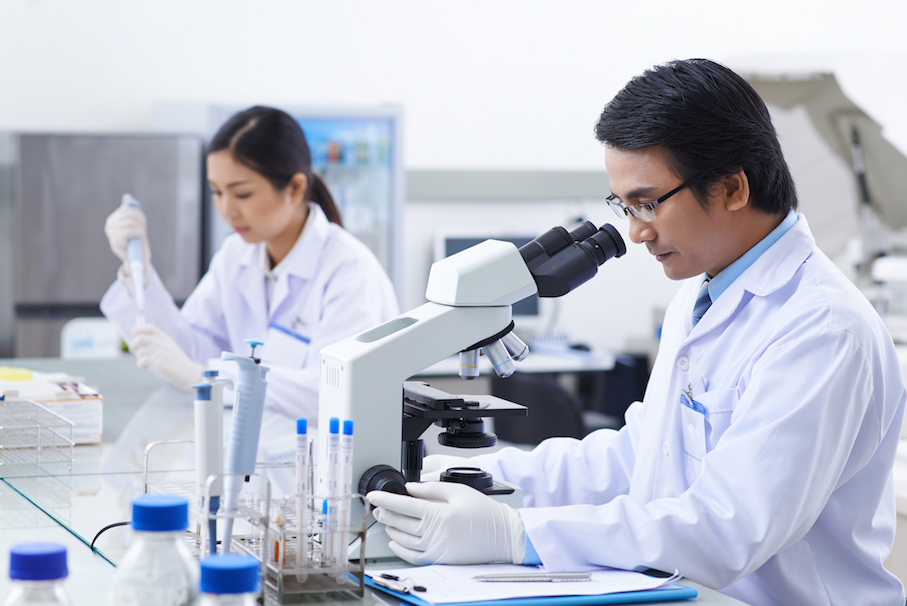
image credit- shutterstock
Researchers from Chung-Ang University in South Korea have introduced a novel nanotechnology-based platform that can shorten the time required for COVID-19 diagnosis.
Their surface-enhanced Raman scattering (SERS)-PCR detection platform prepared using gold nanoparticles (AuNPs) in the cavities of Au ‘nanodimple’ substrates (AuNDSs) can detect viral genes after only 8 cycles of amplification. That is almost one-third of the number required with conventional RT-PCR.
The newly developed SERS-PCR assay uses SERS signals to detect “bridge DNA”—small DNA probes that slowly break down in the presence of target viral genes. Therefore, in samples from patients positive for COVID-19, the concentration of bridge DNA (and therefore the SERS signal) continuously decreases with progressive PCR cycles.
In contrast, when SARS-CoV-2 is not present in the sample, the concentration of bridge DNA and the resultant SERS signal remain unchanged. In this way, SARS-CoV-2 can be rapidly detected in patient samples.




